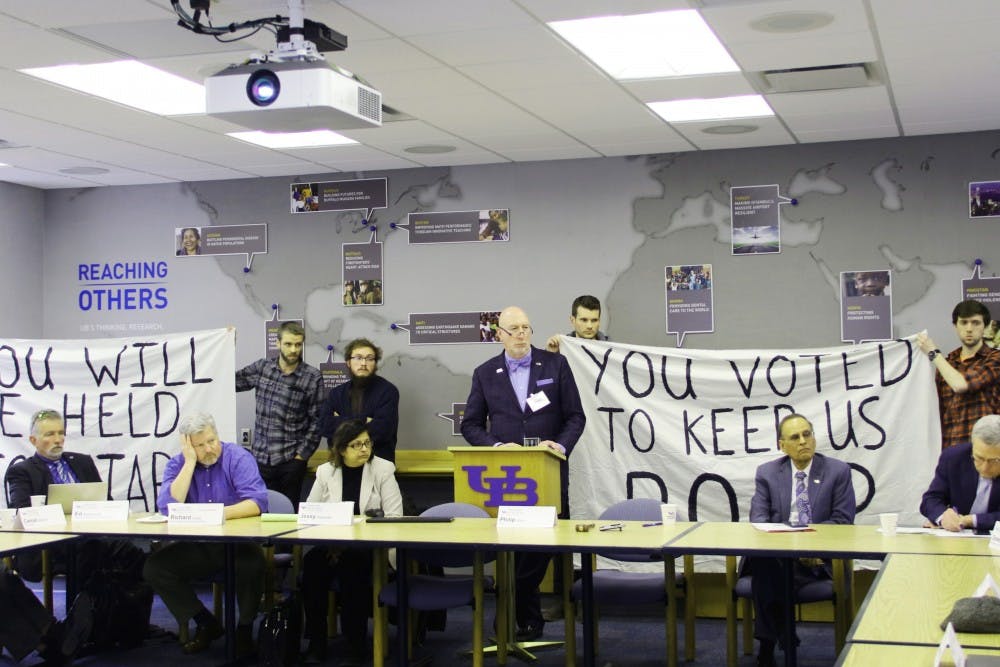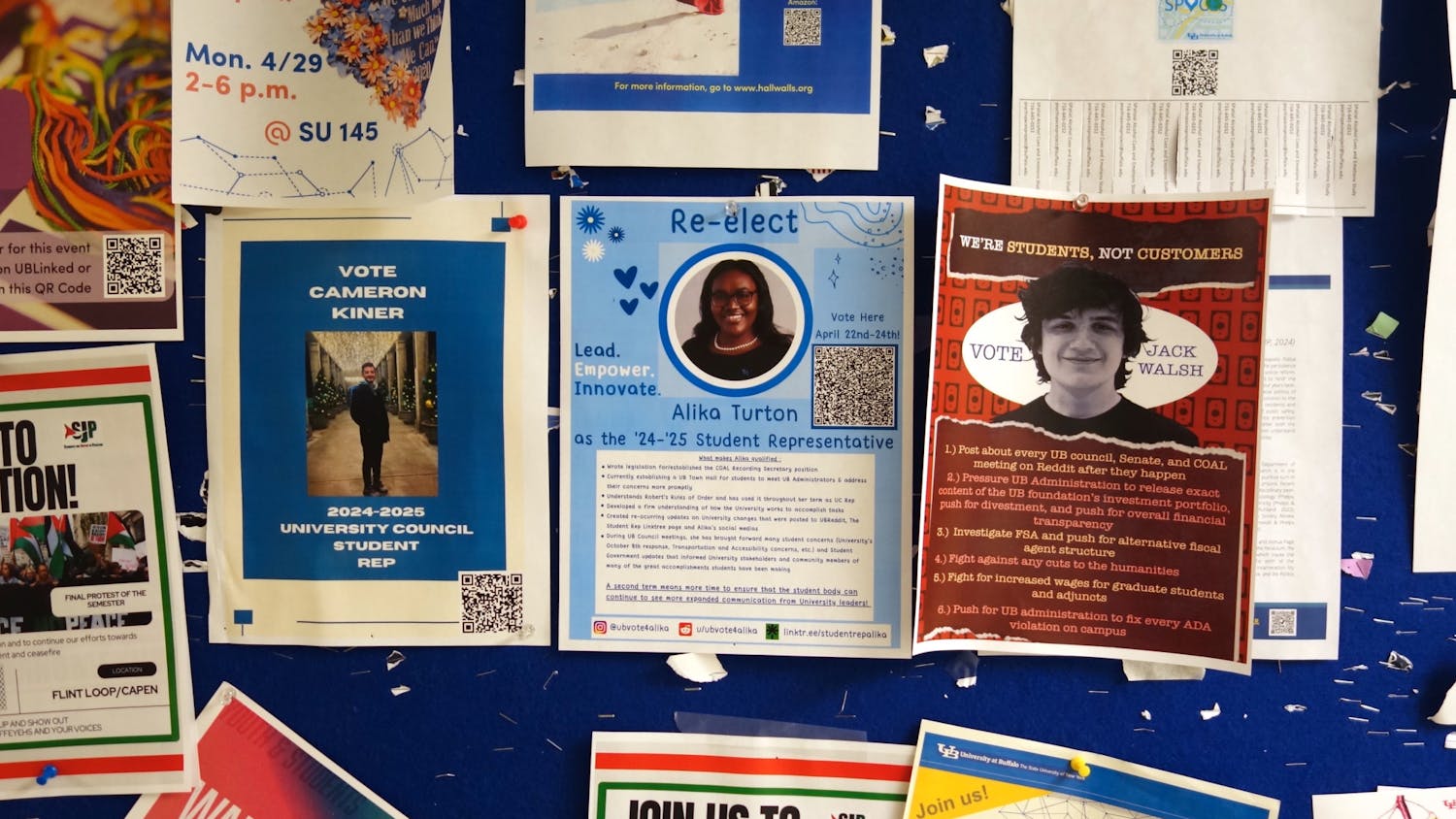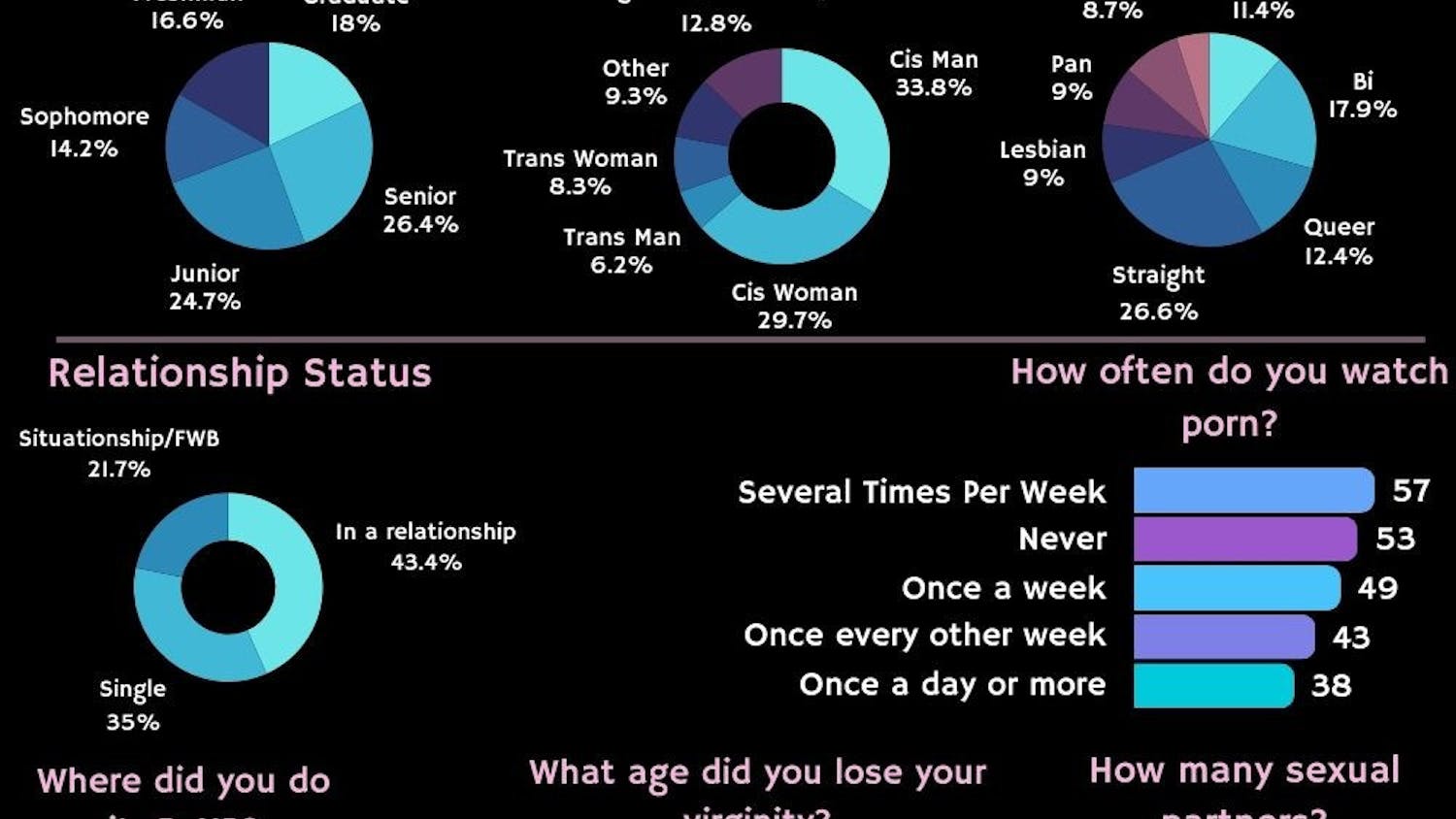English Ph.D. student Willis McCumber spoke at Wednesday’s Faculty Senate Executive Committee meeting and voiced the Living Stipend Movement’s dissatisfaction with the executive committee’s lack of support.
“I don’t know what else to say, you voted to keep us poor and you will be held accountable,” McCumber said.
The demonstration came two weeks after the Faculty Senate Executive Committee voted against moving a resolution to increase graduate stipends to the Faculty Senate, and a week after a UB Council meeting went into executive session following an interruption from McCumber.
McCumber, who is the media coordinator for the LSM, said he was optimistic about the resolution initially passing in the Faculty Senate Executive Committee but he was disappointed when it didn’t go through to the Faculty Senate.
During the Wednesday meeting, five graduate students –– who were part of the LSM — got up from their seats and assembled behind the podium as Philip Glick, chair of the Faculty Senate, introduced the topic of graduate student stipends to the floor. The students held signs saying “You voted to keep us poor,” and “You will be held accountable.”
Glick said the FSEC had endorsed the resolution to increase graduate stipends when students brought a petition to them a year ago. But the resolution to increase stipends never made it past the FSEC.
“We have failed to pass the resolution along in our senate and there have been specific concerns both in the executive committee and the senate,” he said.
Glick asked Jason Benedict from the Budget Priorities Committee to “lead a small discussion” about the stipend resolution while the graduate students held up signs.
Benedict began the discussion by citing Macy MacDonald’s March 4 letter to the editor published in The Spectrum, and said he felt the opinions in the letter were a “pretty gross mischaracterization of the discussion we had at the meeting.”
The BPC proposed a new resolution, Benedict said, and the language was “softened.” It was also Benedict’s personal opinion that the language of the resolution should be more aspirational than negative.
“I'd like to maybe see the tone of the resolution flipped instead of being very negative-negative. Maybe talk about the benefits that could come from paying our graduate students more, paying a higher wage and really turn the tone of the resolution on its head,” Benedict said.
McCumber said this comment was disappointing.
“We’re dismayed they focus on tone rather than substance. We’re dismayed they focus on departments rather than the public good of the entire institution,” McCumber said.
The latter half of McCumber’s comment referred to members of the executive committee such as Cemal Basaran, professor and director of Electronic Packaging Laboratory, who said at the meeting that the responsibility to decide stipends should be the departments’ decision.
Basaran said students were not being paid “below minimum wage or poor wages” by the university but are being paid “non-living” wages by their departments. Basaran believes the low wages are a result of departments hiring “more TAs than they can support.”
“The source of the problem is the department, not the university,” Basaran said.
Glick gave the students two minutes to speak at the podium, during which time McCumber addressed members of the executive committee who believe stipends are the responsibility of departments and not upper administration.
Graduate students who hear these comments, according to McCumber, “don’t believe it.”
“They think that this committee has abdicated its responsibility to send a clear ringing message to the systemic budget priorities,” McCumber said.
After McCumber’s short speech, Joseph Moore asked members of the executive committee if they knew what the lowest annual stipend received by graduate students was.
No one answered.
Moore said the lowest stipend was $9,959.
“It's $9,959. We have students making $9,959 for full TA appointments. Now, ask yourself and ask the administration how that base minimum compares with other institutions,” Moore said.
Glick said that, although he didn’t answer the question at the time, he knew the answer.
“I was definitely within $100,” Glick said.
Glick believes other members of the executive committee also knew the number but didn’t speak up because they weren’t entirely sure, and said as academics they may feel uncomfortable speaking about something they hadn’t researched.
“They don’t want to sound wrong in public,” Glick said.
Tanveen Vohra is a co-senior news editor and can be reached at tanveen.vohra@ubspectrum.com and @TanveenUBSpec
Tanveen Vohra is a former senior news editor and covered international relations and graduate student protests.






